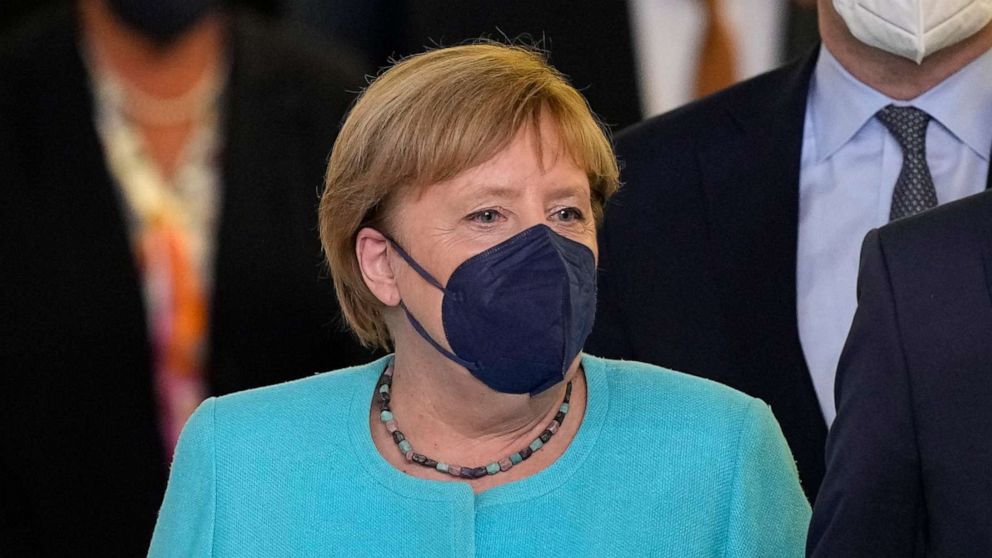
As the curtain falls on the Merkel era, Germany’s largest parties are set to vie for power
ABC News
Germans will elect a new federal parliament in a vote that will determine who could succeed Angela Merkel.
After almost 16 years as leader of Europe's most powerful economy, Angela Merkel will be leaving the chancellorship behind as Germany votes on a new parliament. Merkel's successor -- either her Christian Democratic Union appointee, Armin Laschet, or Olaf Scholz of the center-left Social Democrats -- will be determined only once a new government is formed.
Sunday's general election saw Scholz's SPD win 25.7% of the vote, closely followed by the conservative CDU at 24.1%, according to official preliminary results released Monday morning. However, they alone don't have the majority needed to rule and will have to form strategic coalitions that will determine who will govern the country.
It's historically rare in German politics that the make-up of a leading coalition and identity of the next chancellor is so unclear. Despite Merkel's popularity, her CDU struggled to galvanize the conservative party's traditional base under Laschet, the governor of Germany's North Rhine-Westphalia state.
Laschet was gaffe-laden during the campaign, including being caught on camera laughing during a tribute to those who died in the devastating floods in West Germany in July. Even on voting day, Laschet made a blunder by folding his ballot the wrong way -- making his voting choice visible, which could make his vote invalid.
